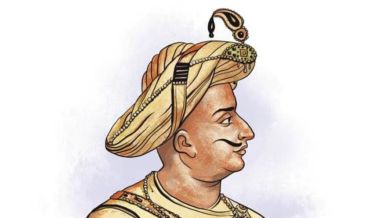No Tipu Sultan, no Anglo-Mysore wars in Class 8 NCERT book: Why the Centre says that’s okay
New syllabus prioritises broad historical survey; states free to expand on local figures

On the new NCERT Class 8 Social Science textbook omitting the mention of Tipu Sultan, Haidar Ali, and the Anglo-Mysore wars of the 1700s, the Centre said in response to a question in Parliament on Wednesday that states have the “flexibility to provide more coverage about regional personalities and events in their textbooks.”
“Education being a subject in the Concurrent List of the Constitution and the majority of schools being under the jurisdiction of the State Governments, the respective State Government may adopt or adapt NCERT textbooks or develop their own textbooks based on the National Curriculum Framework. The states have flexibility to provide more coverage about regional personalities and events in their textbooks,” Minister of State for Education Jayant Chaudhary said in response to a question in the Rajya Sabha.
Ritabrata Banerjee of the Trinamool Congress had asked whether the new book skips the mention of Tipu Sultan, Haidar Ali, or the Anglo-Mysore wars of the 1700s in its chapter on India’s colonial era, and the reasons for this.
In his response, Chaudhary said that Part 1 of the new Class 8 Social Science textbook has been developed in alignment with the curricular goals and competencies under the National Education Policy (NEP) 2020 and the National Curriculum Framework for School Education (NCFSE) 2023.
The new textbook comprises four themes: *India and the World: Land and the People; Tapestry of the Past; Governance and Democracy; Economic Life Around Us.*
“Personalities featured in these themes have been included contextually and in accordance with curricular objectives. The textbook introduces new pedagogical approaches, emphasizes refined classroom practices, and presents a focused syllabus. These textbooks encourage students to explore more through experiential learning, undertake fieldwork, and focus on evidence-based understanding. The approach adopted for the Middle Stage (Grades 6 to 8) is to provide only a broad survey of Indian civilization from prehistoric times all the way to Independence,” Chaudhary’s response stated.
The new NCERT Class 8 Social Science textbook was released last month. The chapter on the colonial era contains a section on early resistance movements that challenged British colonialism in the run-up to the 1857 rebellion. Here, there are references to the ‘Sannyasi-Fakir rebellion’ of the 1700s, the Kol Uprising, the Santhal rebellion, and “peasant uprisings” of the 1800s.
The book, however, does not mention resistance to the East India Company from the rulers of Mysore — Tipu Sultan and Haidar Ali — or the Anglo-Mysore wars of the 1700s.
The earlier Class 8 history textbook referred to Mysore under Haidar Ali and Tipu Sultan, and the four Anglo-Mysore wars, as part of a section on the expansion of the East India Company’s rule.